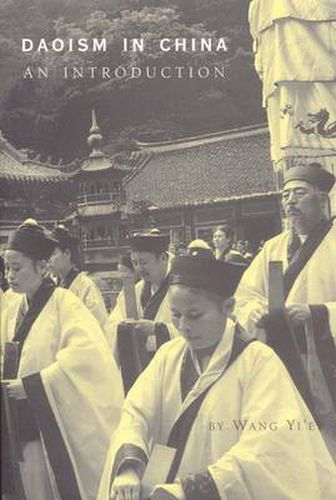Readings Newsletter
Become a Readings Member to make your shopping experience even easier.
Sign in or sign up for free!
You’re not far away from qualifying for FREE standard shipping within Australia
You’ve qualified for FREE standard shipping within Australia
The cart is loading…






Daoism is perhaps the least understood of the world’s major religions. Although many millions of readers are familiar with one or more of the seemingly endless translations of the Daode jing (aka Tao Te Ching), most assume that Daoism refers chiefly to a philosophical school or outlook based on naturalism and spontaneity. However, Daoism is vastly richer than that, its roots steeped in many strands of Chinese philosophy, religion, and folklore, including Buddhism and Confucianism. Indeed, due to several millennia of cross-influences, these other belief systems, even Chinese culture itself, cannot be understood without some basic grasp of Daoism. Here, for the first time, is a concise introduction to the many-faceted entity that comprises Daoism in China. Beginning with a discussion of spirituality in early China, it moves on to describe the rise of Daoist masters, lineages, and sects, and introduces and explains key deities, temples, and sacred places, as well as Daoism’s core texts and scriptures. It concludes with an overview of Daoism in modern China and its organizations worldwide, and a discussion of the influence of Daoism on Chinese culture and folk beliefs. Written for the lay reader by a noted Chinese Daoist scholar, this is an essential text for anyone interested in Chinese culture or curious about one of the world’s important belief systems.
$9.00 standard shipping within Australia
FREE standard shipping within Australia for orders over $100.00
Express & International shipping calculated at checkout
Daoism is perhaps the least understood of the world’s major religions. Although many millions of readers are familiar with one or more of the seemingly endless translations of the Daode jing (aka Tao Te Ching), most assume that Daoism refers chiefly to a philosophical school or outlook based on naturalism and spontaneity. However, Daoism is vastly richer than that, its roots steeped in many strands of Chinese philosophy, religion, and folklore, including Buddhism and Confucianism. Indeed, due to several millennia of cross-influences, these other belief systems, even Chinese culture itself, cannot be understood without some basic grasp of Daoism. Here, for the first time, is a concise introduction to the many-faceted entity that comprises Daoism in China. Beginning with a discussion of spirituality in early China, it moves on to describe the rise of Daoist masters, lineages, and sects, and introduces and explains key deities, temples, and sacred places, as well as Daoism’s core texts and scriptures. It concludes with an overview of Daoism in modern China and its organizations worldwide, and a discussion of the influence of Daoism on Chinese culture and folk beliefs. Written for the lay reader by a noted Chinese Daoist scholar, this is an essential text for anyone interested in Chinese culture or curious about one of the world’s important belief systems.